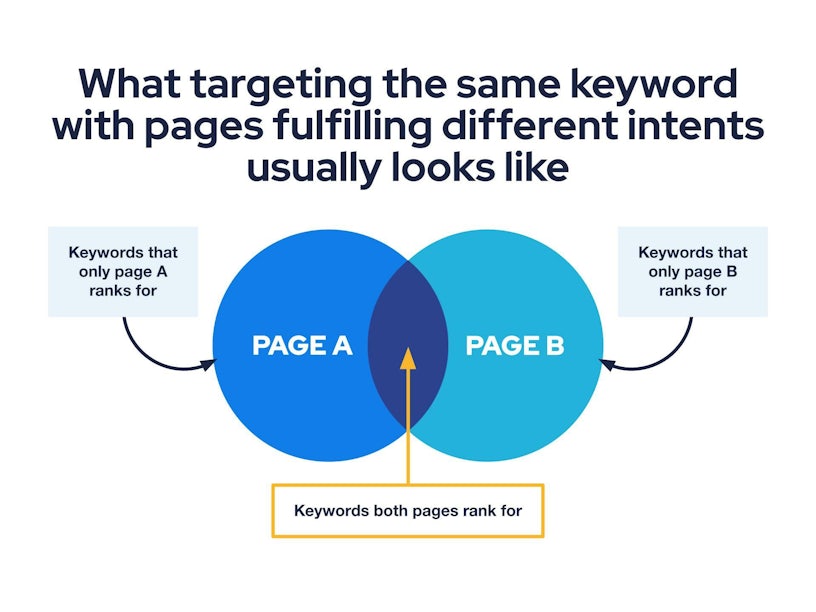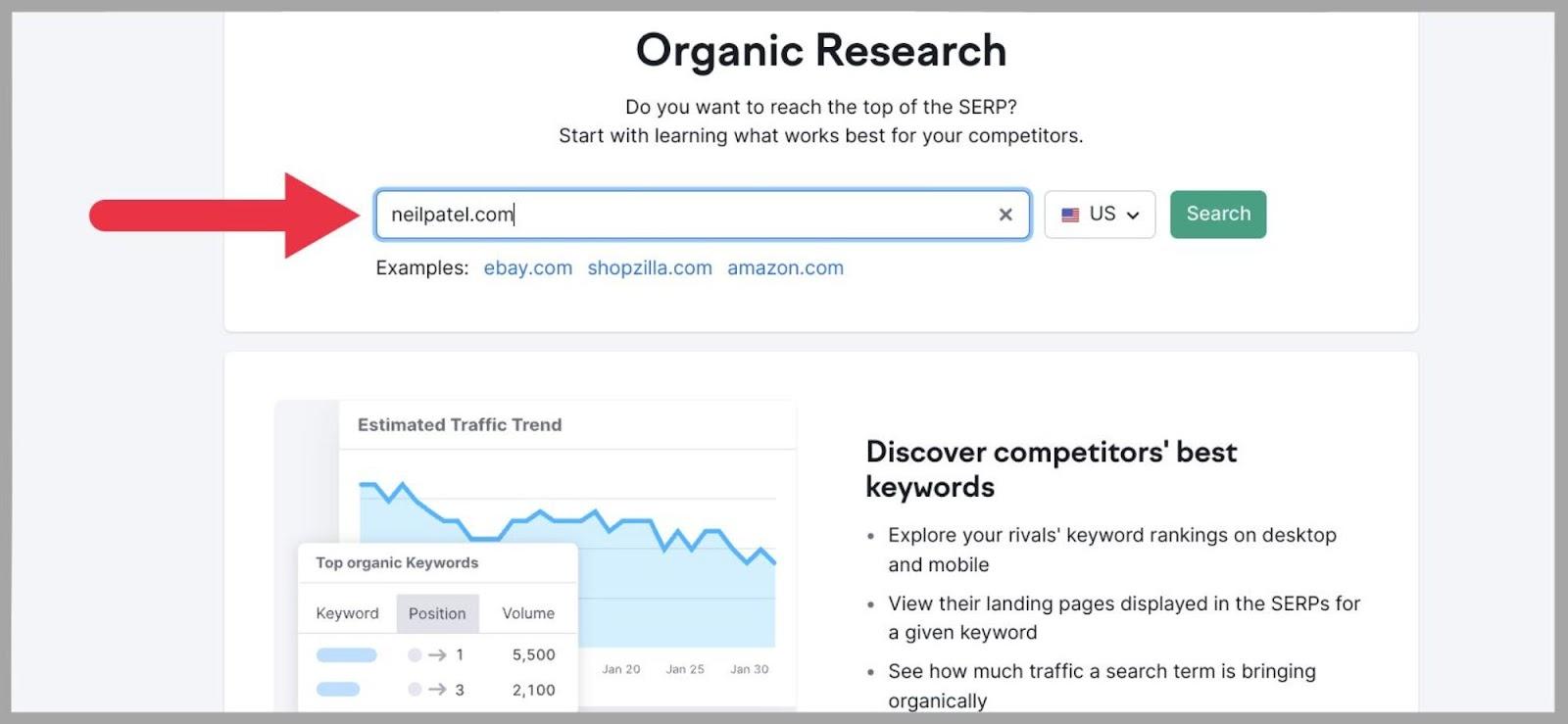Importance of Keyword Research
Importance of Keyword Research
Keyword research is the backbone of effective SEO. It helps identify terms users enter in search engines, guiding content creation. An effective strategy increases visibility and draws organic traffic. Precise keyword choices target specific audiences, enhancing engagement. Advanced techniques reveal high-performing keywords, giving a competitive edge. Moreover, they adapt to trends and algorithm changes. Understanding customer intent becomes easier, leading to higher conversions. It’s not just about traffic but attracting the right visitors. Businesses thrive by meeting audience needs accurately. Effective keyword research strategies shape overall marketing success, maximizing ROI. Without it, digital marketing efforts can falter, missing crucial opportunities.
Definition and significance of keyword research
Keyword research identifies terms users enter in search engines. It’s a fundamental aspect of SEO. This process pinpoints the words and phrases relevant to a business’s audience. By understanding these keywords, businesses can create content that ranks higher on search engines.
Effective keyword research drives organic traffic to websites. It aligns content with user intent, ensuring relevance. This increases the chances of user engagement and conversions. Moreover, it helps marketers understand trends and customer behavior. Knowing which keywords competitors target also provides strategic insights. In essence, keyword research boosts visibility, enhances user experience, and keeps businesses competitive in the digital landscape.
Benefits of advanced keyword research techniques

Advanced keyword research techniques offer numerous benefits. They help businesses identify high-value keywords that attract targeted traffic. With better keyword insights, companies can create content that meets user intent. This improves search engine rankings and enhances online visibility.
Using these techniques also allows for more precise targeting. It helps in understanding customer needs and preferences. Additionally, advanced research uncovers niche opportunities competitors might overlook.
This leads to increased engagement and higher conversion rates. Moreover, it assists in optimizing ad campaigns by focusing on effective keywords. Overall, these techniques streamline marketing efforts, making them more efficient and impactful.
Semantic Keyword Research

Semantic Keyword Research
Semantic keyword research goes beyond basic keyword matching. It focuses on understanding the context and intent behind search queries. This approach helps optimize content to align with how users naturally speak and think. By incorporating related terms and phrases, it ensures a comprehensive coverage of a topic.
Semantic keyword research strategies aim to create content that answers user questions effectively. Using tools like Google’s NLP API, marketers can better grasp semantic relationships. This method enhances content relevance and improves search engine rankings.
Ultimately, this technique enhances user experience by providing more accurate and useful information. Businesses that adopt semantic keyword insights can better anticipate user needs and stay ahead in their SEO efforts.
Understanding semantic keyword research

Semantic keyword research involves understanding the context and intent behind search queries. It goes beyond just matching words. Instead, it focuses on how users naturally speak and think. This method considers related terms and phrases that align with a user’s intent.
By grasping semantic relationships, content creators can cover a topic more comprehensively. They use tools like Google’s NLP API to decode these relationships. This approach makes content more relevant to users.
Ultimately, it helps in improving search engine rankings. Businesses that leverage semantic insights can better anticipate user needs. They stand a higher chance of meeting search intent effectively. This technique enriches the user experience by providing precise information.
Implementing semantic keyword research strategies

To implement semantic keyword research strategies, one must first grasp the core topics users are interested in. Using tools like Google’s NLP API can help identify related terms and phrases. It’s essential to create content that addresses the user’s intent comprehensively.
Next, grouping keywords by themes instead of treating them individually can enhance relevancy. Regularly updating and refining keyword lists ensures they stay aligned with current trends. Additionally, analyzing user queries and feedback can reveal new semantic relationships.
Including synonyms and related phrases within content boosts search engine understanding. Finally, focusing on natural language and conversational tone helps match how users search, improving visibility and engagement.
Long-Tail Keyword Analysis
Long-Tail Keyword Analysis
Long-tail keywords are longer, specific phrases. They reflect how consumers search for niche items. These keywords generally have lower search volumes but higher conversion rates. They’re less competitive and more cost-effective for SEO strategies.
Identifying long-tail keywords requires understanding the audience’s needs. Tools like Google’s Keyword Planner can help pinpoint them. Once identified, integrating them into content enhances relevancy and search visibility.
Utilizing long-tail keywords improves website traffic quality. It attracts users who are closer to making a purchase. This strategic use of specific phrases can significantly boost content optimization efforts. Therefore, businesses should not overlook the power of long-tail keywords in their keyword research strategies.
Exploring long-tail keywords for SEO
Long-tail keywords are crucial for effective SEO. These keywords typically have lower search volumes but capture highly specific queries. They reflect user intent with more precision. Marketers find that targeting these phrases often leads to higher conversion rates.
Identifying long-tail keywords involves deep understanding of the target audience. Tools like Google’s Keyword Planner prove useful. They reveal niche phrases that users actively search.
Once identified, incorporating these keywords into website content is important. This practice improves search engine rankings. It also attracts highly targeted traffic. Consequently, businesses see better user engagement and increased conversions. Long-tail keywords play a vital role in comprehensive keyword research strategies.
Utilizing long-tail keywords for content optimization
Incorporating long-tail keywords into content is essential for effective optimization. Writers should weave these phrases naturally within their articles. This approach ensures readability and maintains search engine relevance. Long-tail keywords help address specific queries from the target audience.
They can be used in headings, subheadings, and throughout the body text. Including them in meta descriptions and alt texts also boosts visibility. Additionally, focusing on long-tail keywords helps capture niche markets that broad terms might miss.
Regularly updating content with fresh long-tail keywords is beneficial. It keeps the material current and aligned with evolving search trends. This strategy significantly improves the chances of ranking high in search results.
Competitive Keyword Analysis
Competitive Keyword Analysis
Competitors are a valuable resource in keyword research. By analyzing their strategies, businesses can identify profitable keywords they might have missed. First, identify top competitors within the niche. Tools like SEMrush and Ahrefs can provide insights into their keyword usage.
Look for keywords where competitors rank well and consider targeting them. Examine their content to understand why these keywords are effective. Incorporate similar strategies into your own content plan.
This analysis isn’t just about copying but about adapting and improving. Staying ahead requires continuous monitoring and updating of strategies based on competitors’ changes. This approach ensures sustained visibility and an edge in search engine rankings.
Analyzing competitors’ keyword strategies

Competitors are a valuable resource in keyword research. By analyzing their strategies, businesses can identify profitable keywords they might have missed. First, identify top competitors within the niche. Tools like SEMrush and Ahrefs can provide insights into their keyword usage.
Look for keywords where competitors rank well and consider targeting them. Examine their content to understand why these keywords are effective. Incorporate similar strategies into your own content plan.
This analysis isn’t just about copying but about adapting and improving. Staying ahead requires continuous monitoring and updating of strategies based on competitors’ changes. This approach ensures sustained visibility and an edge in search engine rankings.
Strategies for staying ahead with competitive keyword analysis

To stay ahead, businesses must consistently monitor competitors’ keyword strategies. Regular audits with tools like SEMrush or Ahrefs can reveal shifts in keyword trends and strategies. Adapting quickly to these changes is crucial.
Additionally, utilizing competitor weaknesses is key. Identify gaps in their content and target these opportunities. Investing in high-quality content that outperforms competitors can capture their audience.
Broaden the scope by exploring niche-specific forums and social media trends. These platforms reveal emerging keywords competitors may overlook. Implementing these insights into content ensures businesses remain ahead in search rankings.
Lastly, continuous learning and staying updated with the latest SEO practices can help refine keyword research strategies effectively.
Voice Search Optimization

Optimizing keywords for voice search
Voice search is transforming how users search online. Businesses must adapt their keyword research strategies accordingly. Focus on conversational keywords. These mimic how people speak rather than type. Queries are often longer and formulated as questions.
Impact of voice search on keyword research techniques
Voice search impacts SEO by emphasizing natural language and context over exact keywords. Incorporating question phrases and local-based queries is crucial. Tools like Google’s Keyword Planner help identify these trends. Brands should ensure their content answers specific questions promptly. This ensures they remain relevant and visible in voice search results. Incorporating structured data markup can further enhance visibility in voice search algorithms. Adapting to these techniques is essential for staying ahead in SEO.
Optimizing keywords for voice search

Voice search is changing the game for keyword research. Users speak differently than they type, often using longer, conversational phrases. This means businesses need to focus on natural language and question-based queries. Incorporating phrases like “how” and “what” can capture voice search traffic. Local keywords also play a critical role, as many voice searches are location-specific. Tools like Google’s Keyword Planner can help identify these trends. Ensuring website content answers specific questions clearly and directly is crucial. Structured data markup can enhance visibility in voice search results. Adapting these strategies will help businesses stay competitive in a voice search-driven world.
Impact of voice search on keyword research techniques

Voice search is reshaping keyword research techniques. Users’ search behaviors have shifted, favoring natural, conversational phrases over short, fragmented keywords. This change means that businesses must now focus on question-based keywords and full sentences. The rise of voice assistants like Siri and Alexa underscores the need for optimization around questions starting with “how,” “what,” and “why.” Additionally, local SEO has gained importance due to the prominence of location-based searches in voice queries. This evolution in search behavior requires adapting keyword research strategies to meet new user expectations. Businesses focused on natural language and direct answers will stand out in voice search results.
Conclusion
Conclusion
Advanced keyword research techniques are crucial in today’s digital landscape. Effective keyword research drives targeted traffic and enhances SEO performance. Semantic keywords help address user intent, leading to better engagement. Long-tail keywords provide opportunities in niche markets, improving search rankings. Competitive keyword analysis offers insights into industry trends and rivals’ strategies. Adapting keywords for voice search is essential as voice-activated devices become more prevalent. Businesses should continuously evolve their keyword research strategies to stay competitive. Future trends will likely demand even more refined and user-focused approaches. Keeping up with these changes ensures sustained online visibility and relevance.
Key takeaways for advanced keyword research techniques

Advanced keyword research techniques are essential for digital success. They involve analyzing user intent and context. Semantic keywords help attract the right audience. Long-tail keywords target niche markets, increasing organic traffic. Competitive analysis provides insights into industry trends and rival strategies. Voice search optimization ensures keywords match conversational queries. Staying updated with evolving search behaviors is crucial. Implementing these techniques can lead to better rankings and higher engagement. Regularly revisiting keyword strategies keeps content relevant and competitive. Businesses should adopt a proactive approach to stay ahead in the digital space. Efficient keyword research drives a strong SEO foundation. This leads to sustained online visibility and growth.
Future trends in keyword research methodologies
The landscape of keyword research is evolving rapidly. Emerging trends suggest the increased use of AI and machine learning to predict keyword performance. Personalization in search results will become more prevalent, requiring tailored keyword strategies. The integration of visual search keywords is expected to rise with the growth of image and video content. The expansion of voice search will demand more natural, conversational keyword phrases. Furthermore, real-time data analysis will offer immediate insights, enhancing strategy adjustments. Marketers must stay agile, continuously adapting to these shifts. Future methodologies will blend traditional techniques with innovative technologies for enhanced SEO outcomes.
